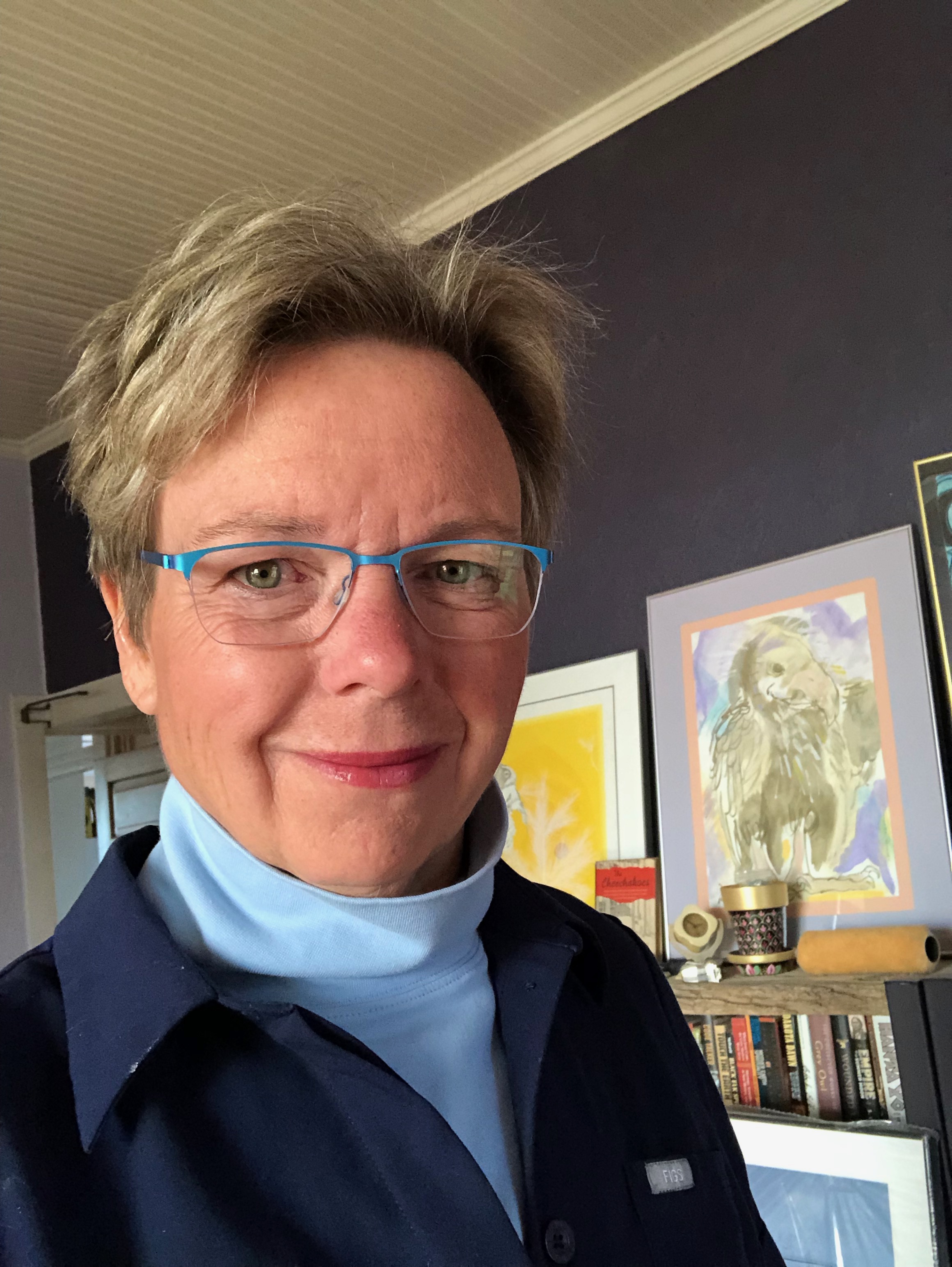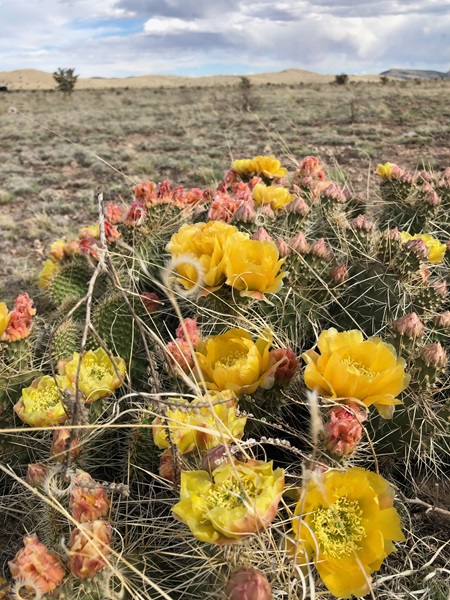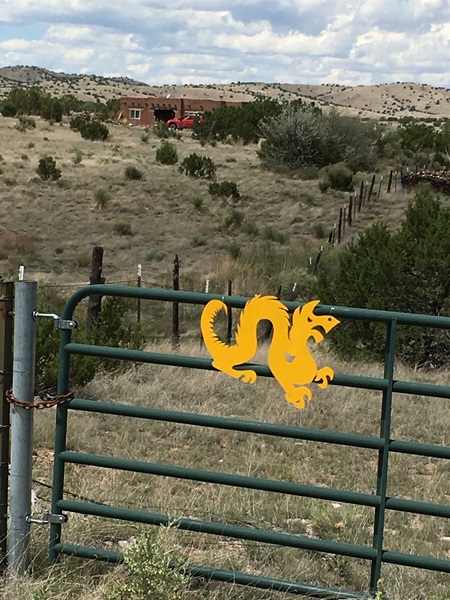From the front lines, Drexel alumna Holly Hagy ‘15 offers a window into rural nursing
June 29, 2021
 “COVID-19 has magnified health and technical inequities, especially in rural communities, that have existed for a very long time” says Hagy from her office in the Magdalena Schools in Magdalena, New Mexico. In her dual roles as a school nurse and a nurse at Socorro General Hospital, Hagy has been caring for patients and students for more than five years. On any given night, she could care for a newborn baby who is just two days old, as well as tending to an elderly patient on hospice care. “There are so many rewards practicing in rural areas, including getting to know your patients. As a nurse in a critical access hospital, I need to be versed in many areas. I wouldn’t trade this for any other position at any other place.”
“COVID-19 has magnified health and technical inequities, especially in rural communities, that have existed for a very long time” says Hagy from her office in the Magdalena Schools in Magdalena, New Mexico. In her dual roles as a school nurse and a nurse at Socorro General Hospital, Hagy has been caring for patients and students for more than five years. On any given night, she could care for a newborn baby who is just two days old, as well as tending to an elderly patient on hospice care. “There are so many rewards practicing in rural areas, including getting to know your patients. As a nurse in a critical access hospital, I need to be versed in many areas. I wouldn’t trade this for any other position at any other place.”
Southwest of Albuquerque, nestled in the mountains in the high desert of central New Mexico, Magdalena has a population of about 900 people. Hagy says, “living in a rural area—especially during COVID-19 has been difficult. Lack of internet connectivity and services for the students, and all the death that has occurred has been traumatizing. In a small community, you know the people who have died—or the grandchildren or the cousins.” Hagy adds that, “it has also been a saving grace, since we have wide-open spaces to venture outside to ease the isolation related to COVID.”
At the hospital, Hagy chose to care for the patients with COVID-19. “I would not allow my tech or co-nurse to go into the rooms of patients who had COVID. It was my way of taking care of my team.” There are 12 beds in their hospital, and at times, the nurse-to-patient ratio is 1:1. At the hospital, shifts are 5:00-to-5:00, not 7:00-to-7:00 like most hospitals. Hagy works weekend nights, so the other nurses can have weekends with their families. As a critical access hospital, patients come from as far away as 130 miles to be seen, because it is the closest hospital. “We also have some people who are only 15 minutes away from the hospitals in Albuquerque, but prefer our emergency department,” says Hagy, “because they know they will be seen immediately at our hospital. We have a great little hospital.” One of the things she appreciates about it is the head of the hospital is a nurse. “I think it keeps the humanity of nursing present as the underlying current of the hospital.”
During the week, Hagy is the school nurse at the Magdalena School, serving students in grades pre-K through 12. The graduating class in 2021 had ten students, many of whom are Navajo. COVID-19 has disproportionately impacted tribal communities across the United States. According to NPR, “Native Americans are among the most at risk when it comes to contracting the virus and have died at more than twice the rate of white people.” In the spring 2020, the Navajo Nation held the highest per-capital infection rate of COVID-19 in the U.S. Almost a year later, the Navajo Nation has made significant progress vaccinating adults. “Over half the adult population on the Navajo Nation has been vaccinated, but to reach herd immunity we need more people to get vaccinated,” said Navajo Nation President, Jonathan Nez. New Mexico is also leading in vaccination rates and continues to rank in the top states.
In a year that has caused immense challenges, Hagy has been in awe of the support and kindness from the entire community. As the specific needs became apparent for families in the school community, an email was sent to school staff seeking cleaning supplies and food. Without fail, in the morning, Hagy would find donations at the school to help families in need.
Hagy had an early window into the need for and importance of health practitioners in rural communities. During a family vacation to Maine, her father ended up at the local critical access hospital. Learning that other patients had traveled two hours to get to the hospital was eye opening, because she grew up within 20 minutes of two major hospitals in Connecticut. This inspired her interest in health care, as well as highlighting the critical role of rural health facilities.
After spending decades running a marketing and advertising company with her husband, Hagy chose nursing as her second career. “My first degree was in chemistry and my intention was to go into the medical field. Thirty-five years later, I chose Drexel to fulfill that dream,” says Hagy. Prior to attending Drexel, spending time in Philadelphia was common for Hagy and her husband, who attended the Philadelphia Orchestra and Philadelphia Opera Company performances regularly. They would often drive around the streets of Philadelphia and during a driving excursion, they passed the Drexel University Dragon logo painted on the elevated train tracks on Market Street in University City. “I was really drawn to the logo and through research discovered that Drexel had several types of nursing programs.”
As a non-traditional student, Hagy thrived in the Bachelor of Science in Nursing program at Drexel’s College of Nursing and Health Professions. She knew she wanted to practice in an area that was underserved, and ideally in a rural environment. Eager to advance her education, Hagy applied to the Macy Undergraduate Leadership Fellows Program and was accepted.
 The Macy Undergraduate Leadership Fellows Program is a voluntary for-credit leadership program designed for undergraduate students in public health, nursing and the health professions. It focuses on leadership skills to enhance capacity and efficacy. Interprofessional learning and development of structural competency, cultural sensitivity and racial literacy is supported. Students learn to address complex issues, gaining a deeper understanding of root causes of health inequities and strategies to promote collective efficacy in a safe environment. It was through this program that Hagy connected with Roberta Waite, EdD, professor, associate dean for Community-Centered Health & Wellness and Academic Integration and executive director of Stephen & Sandra Sheller 11th St. Family Health Services. “Holly soaked up everything in class and was open to learning while also contributing her unique lived experience,” says Waite. “She always had a passion for working with underserved populations, so I am not surprised that she took root in her current setting. She is living her values and passion and that is incredibly important.”
The Macy Undergraduate Leadership Fellows Program is a voluntary for-credit leadership program designed for undergraduate students in public health, nursing and the health professions. It focuses on leadership skills to enhance capacity and efficacy. Interprofessional learning and development of structural competency, cultural sensitivity and racial literacy is supported. Students learn to address complex issues, gaining a deeper understanding of root causes of health inequities and strategies to promote collective efficacy in a safe environment. It was through this program that Hagy connected with Roberta Waite, EdD, professor, associate dean for Community-Centered Health & Wellness and Academic Integration and executive director of Stephen & Sandra Sheller 11th St. Family Health Services. “Holly soaked up everything in class and was open to learning while also contributing her unique lived experience,” says Waite. “She always had a passion for working with underserved populations, so I am not surprised that she took root in her current setting. She is living her values and passion and that is incredibly important.”
While studying at Drexel she began looking into positions through the National Rural Health Association, NRHA. Her experiences reinforced her interest in working in a rural area after graduation. Through the NRHA, she received several invitations to visit hospitals, including Presbyterian. After visiting New Mexico, Hagy decided Socorro General Hospital, which is part of Presbyterian—was the right fit. She intends to remain in this role until she retires.
“Rural health is a worthy profession—it doesn’t have all the bells and whistles of some larger hospitals—but there are so many other rewards received when practicing in rural America,” says Hagy, “including the reaction of some of my students when they see me grocery shopping. They always greet me and say ‘Hi, Nurse Holly’.